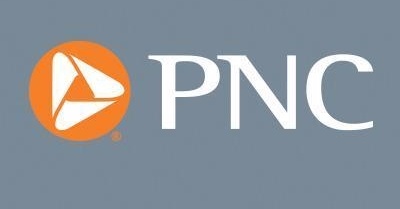 Even With Stronger Outlook
Even With Stronger Outlook
- The minutes from the March 16-17 FOMC meeting noted an improvement in the economic outlook.
- Although the outlook was improved, participants noted that economic activity was still well below potential and that inflation remained below the 2% objective.
- The FOMC reaffirmed its commitment to highly expansionary monetary policy until there was significant, broad-based improvement in the labor market and inflation was at the 2% objective.
- Participants emphasized the need for actual progress in the economy, and not just forecasts for progress.
- PNC expects the FOMC to reduce its asset purchases starting early next year. PNC does not expect the FOMC to increase the fed funds rate until late 2023.
Participants at the Federal Open Market Committee’s meeting on March 16-17 were generally more optimistic about the near-term outlook for the economy compared to earlier in 2021.Participants noted that “the pace of the economic recovery had picked up recently,” and that “that the medium-term outlook for real GDP growth and employment had improved,” although “the sectors most adversely affected by the pandemic remained weak.”
Part of the reason for the improved outlook was because of the passage of the American Rescue Plan in early March. However, despite the improved outlook, “participants agreed that the economy remained far from the Committee’s longer-run goals and that the path ahead remained highly uncertain, with the pandemic continuing to pose considerable risks to the outlook.”
Participants also noted that “headline PCE inflation continued to run below 2 percent,” the FOMC’s long-run objective. They expected inflation, measured on a year-ago basis, to pick up in the near term due to comparisons with spring 2020 when prices declined during the initial stages of the pandemic, as well as because of supply-chain disruptions, but that these factors were expected to be transitory, with inflation set to slow in 2022.
Given that unemployment remains elevated and inflation is still below 2%, participants said that current highly expansionary monetary policy “remains appropriate to foster further economic recovery as well as to achieve inflation that averages 2 percent over time and longer-term inflation expectations that remain well anchored at 2 percent.”
Right now the FOMC is purchasing $120 billion per month of long-term Treasurys and mortgage-backed securities to keep long-term interest rates very low, supporting economic growth. Participants supported the current emphasis on outcome-based goals for monetary policy, that is, tying any future reductions in purchases and increases in the federal funds rate to success in achieving the FOMC’s mandate of maximum employment and inflation of around 2%. There was agreement that these objectives needed to be communicated clearly to the public. The minutes also say that “various participants noted that changes in the path of policy should be based primarily on observed outcomes rather than forecasts.” This is very important: it means that the FOMC does not expect to make monetary policy less supportive of growth (reducing asset purchases) until there is actual progress toward the objectives of maximum employment and 2% inflation.
The minutes also describe the FOMC’s goal of “broad-based and inclusive maximum employment.” This means that the committee is looking for an improvement not just in the overall labor market, but also for subgroups that have traditionally had higher rates of unemployment, such as African-Americans and workers with less education.
Participants noted the increase in long-term interest rates so far in 2021, but did not express concern. They “generally viewed [the increase in rates] as reflecting the improved economic outlook,
some firming in inflation expectations, and expectations for increased Treasury debt issuance.” Participants noted that financial conditions generally remained accommodative, although there were some concern about the availability of financing for small businesses.
The FOMC minutes confirm that monetary policy will remain highly aggressive throughout 2021. The FOMC wants to see real progress toward full employment and higher inflation, not just indications of improvement. The FOMC will also make it clear when it is ready to start reducing its purchases of long-term Treasurys and mortgage-backed securities, and again when it is ready to start increasing the federal funds rate.
PNC expects the FOMC to maintain its asset purchases of $120 billion per month through the rest of this year, and then start to gradually reduce those purchases in 2022 as the labor market further recovers and underlying inflation starts to move higher. PNC expects the FOMC to keep the fed funds rate in its current near-zero range until late 2023. By that time the labor market should be fully healed from the Viral Recession and inflation should be consistently somewhat above 2%.
The PNC Financial Services Group, Inc. is one of the largest diversified financial services institutions in the United States, organized around its customers and communities for strong relationships and local delivery of retail and business banking including a full range of lending products; specialized services for corporations and government entities, including corporate banking, real estate finance and asset-based lending; wealth management and asset management. For information about PNC, visit www.pnc.com.













